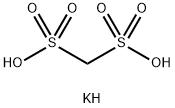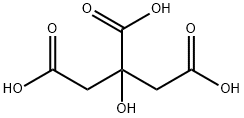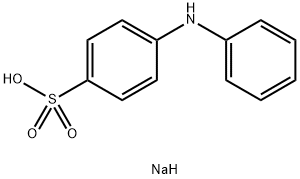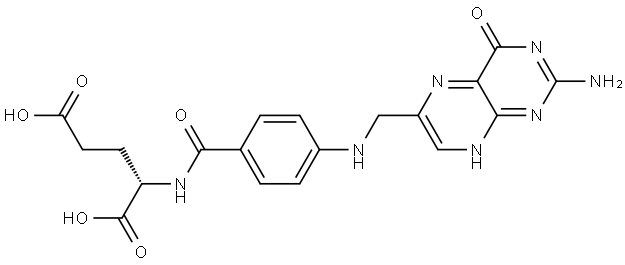Methanedisulfonic acid dipotassium salt
Synonym(s):Potassium methanedisulfonate
- CAS NO.:6291-65-2
- Empirical Formula: CH5KO6S2
- Molecular Weight: 216.26
- MDL number: MFCD06411713
- EINECS: 228-543-0
- SAFETY DATA SHEET (SDS)
- Update Date: 2024-01-19 14:55:28

What is Methanedisulfonic acid dipotassium salt?
The Uses of Methanedisulfonic acid dipotassium salt
Methanedisulfonic acid dipotassium salt is widely used in electroplating process. As the main component of chromium plating additives, it can significantly improve the corrosion of the plating solution on the anode plate, resulting in a brighter surface, higher hardness of the coating, more microcracks and higher corrosion resistance.
Flammability and Explosibility
Not classified
Synthesis
Methanedisulfonic acid dipotassium salt is synthesised using 1,1-dibromomethane as a raw material by chemical reaction. The specific synthesis steps are as follows:
Raw Materials: CH2Br2: 140 g/0.8 mol K2SO3 (45% in water) 600 g/1.7 mol [(C4H9)4N]Br: 6 g KI: 0.8 g; A mixture of 600 g K2SO3-solution (45% in water), 6 g of [(C4H9)4N]Br and 0.8 g KI in 400 ml of water, was heated to 70° C. Within a period of 16 hours, 140 g of CH2Br2 were transferred under the surface of the reaction mixture. During the addition of CH2Br2, the pressure in the reactor was determined with 1007-1008 mbar. Afterwards the reaction mixture was heated up to 90° C. After a total reaction time of 24 h, K2[CH2(SO3)2] started to precipitate. After 72 hours at 90° C., complete conversion of CH2Br2 to [CH2(SO3)2]2- has been achieved. The reaction mixture was cooled down to 20° C. The precipitated K2[CH2(SO3)2] was isolated by suction filtration and washed three times with 100 ml of water. The product was dried 6 hours at 80° C. under atmospheric pressure. Yield: 175 g (86.7%) Composition: Assay: 99.7% (Titration) Br-: 111 ppm (Ion-chromatography) SO32-:<50 ppm (Ion-chromatography) SO42-: 54 ppm (Ion-chromatography); Purification by Recrystallization 175 g of K2[CH2(SO3)2] were suspended in 600 ml of water. The suspension was heated to about 100° C. At a pressure of about 40 mbar, 362 ml of water were evaporated out of the mixture. The remaining suspension was cooled down to 20° C. The precipitated K2[CH2(SO3)2] was isolated by suction filtration and dried 6 h at 80° C. under atmospheric pressure. Yield: 165.4 g (94.5%) Overall yield: 81.9% Composition: Assay: 99.8% (Titration) Br-: <10 ppm (potentiometric titration) SO32-: <50 ppm (Ion-chromatography) SO42-: <50 ppm (Ion-chromatography).
Properties of Methanedisulfonic acid dipotassium salt
| Density | 1.622[at 20℃] |
| Water Solubility | 34.438g/L at 20℃ |
Safety information for Methanedisulfonic acid dipotassium salt
| Signal word | Warning |
| Pictogram(s) |
 Exclamation Mark Irritant GHS07 |
| GHS Hazard Statements |
H315:Skin corrosion/irritation H319:Serious eye damage/eye irritation H335:Specific target organ toxicity, single exposure;Respiratory tract irritation |
| Precautionary Statement Codes |
P261:Avoid breathing dust/fume/gas/mist/vapours/spray. P264:Wash hands thoroughly after handling. P264:Wash skin thouroughly after handling. P271:Use only outdoors or in a well-ventilated area. P280:Wear protective gloves/protective clothing/eye protection/face protection. P302+P352:IF ON SKIN: wash with plenty of soap and water. P305+P351+P338:IF IN EYES: Rinse cautiously with water for several minutes. Remove contact lenses, if present and easy to do. Continuerinsing. |
Computed Descriptors for Methanedisulfonic acid dipotassium salt
Methanedisulfonic acid dipotassium salt manufacturer
Alcatraz Chemicals
New Products
(S)-3-Aminobutanenitrile hydrochloride 4-Methylphenylacetic acid N-Boc-D-alaninol N-BOC-D/L-ALANINOL Tert-butyl bis(2-chloroethyl)carbamate 3-Morpholino-1-(4-nitrophenyl)-5,6-dihydropyridin- 2(1H)-one Furan-2,5-Dicarboxylic Acid Tropic acid 1-Bromo-3,5-Di-Tert-Butylbenzene S-2-CHLORO PROPIONIC ACID ETHYL ISOCYANOACETATE 2-Bromo-1,3-Bis(Dimethylamino)Trimethinium Hexafluorophosphate 4-IODO BENZOIC ACID 3-NITRO-2-METHYL ANILINE 1-(2,4-DICHLOROPHENYL) ETHANAMINE (2-Hydroxyphenyl)acetonitrile 4-Bromopyrazole 2-(Cyanocyclohexyl)acetic acid 4-methoxy-3,5-dinitropyridine 1-(4-(aminomethyl)benzyl)urea hydrochloride 2-aminopropyl benzoate hydrochloride diethyl 2-(2-((tertbutoxycarbonyl)amino) ethyl)malonate tert-butyl 4- (ureidomethyl)benzylcarbamate Ethyl-2-chloro((4-methoxyphenyl)hydrazono)acetateRelated products of tetrahydrofuran








You may like
-
 6291-65-2 Dipotassium methanedisulfonate 98%View Details
6291-65-2 Dipotassium methanedisulfonate 98%View Details
6291-65-2 -
 2033-24-1 98%View Details
2033-24-1 98%View Details
2033-24-1 -
 1975-50-4 98%View Details
1975-50-4 98%View Details
1975-50-4 -
 2-HYDROXY BENZYL ALCOHOL 98%View Details
2-HYDROXY BENZYL ALCOHOL 98%View Details
90-01-7 -
 2-Chloro-1,3-Bis(Dimethylamino)Trimethinium Hexafluorophosphate 221615-75-4 98%View Details
2-Chloro-1,3-Bis(Dimethylamino)Trimethinium Hexafluorophosphate 221615-75-4 98%View Details
221615-75-4 -
 61397-56-6 CIS BROMO BENZOATE 98%View Details
61397-56-6 CIS BROMO BENZOATE 98%View Details
61397-56-6 -
 14714-50-2 (2-Hydroxyphenyl)acetonitrile 98+View Details
14714-50-2 (2-Hydroxyphenyl)acetonitrile 98+View Details
14714-50-2 -
 118753-70-1 98+View Details
118753-70-1 98+View Details
118753-70-1